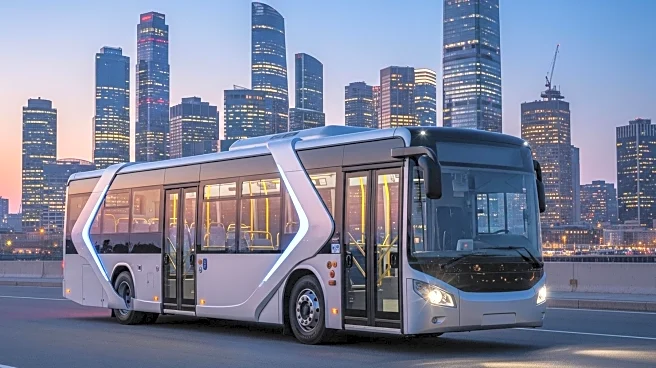What is the story about?
What's Happening?
The Regional Transportation District (RTD) has announced plans to invest $539 million in diesel buses, diverging from previous intentions to focus on electric alternatives. This decision marks a significant shift in RTD's strategy, as the agency opts for diesel buses amid financial considerations. The investment will support the acquisition of new diesel buses to replace aging fleet components, ensuring continued service reliability. The move comes as RTD evaluates cost-effectiveness and operational needs in its transportation planning.
Why It's Important?
RTD's decision to invest in diesel buses has implications for environmental sustainability and public transportation policy. Diesel buses, while cost-effective, contribute to emissions and may conflict with broader goals of reducing carbon footprints. The choice reflects the financial pressures faced by transit agencies in balancing budget constraints with environmental commitments. The investment impacts stakeholders, including commuters, environmental advocates, and policymakers, as it shapes the future of public transit infrastructure.
What's Next?
RTD may face scrutiny from environmental groups and policymakers advocating for cleaner transportation solutions. The agency will likely continue to assess its fleet strategy, potentially revisiting electric alternatives as technology advances and funding becomes available. Stakeholders may engage in discussions on sustainable transit solutions and the role of public investment in achieving environmental goals.
Beyond the Headlines
The decision to invest in diesel buses highlights the challenges transit agencies face in transitioning to sustainable practices. The financial considerations driving RTD's choice reflect broader economic pressures impacting public infrastructure investments. The situation may prompt discussions on funding mechanisms and policy incentives to support cleaner transportation options.
















